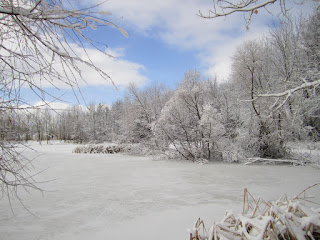Over the past year or two I have written, rather infrequently, about RAC, and most of it has not been very complementary. I make no secret of my hate for those unelected individuals who have driven RAC into the ground, nor do I have any time for those unelected and appointed “Empire Builders” and “Control Freaks” who have been trying to turn the ARES organization into a clone of the Canadian Army Communications Branch.
So tonight I thought that rather sit here and bitch about what is going on in RAC ARES, I would give some constructive ideas, and see if anyone pays attention.
I have said many times before that ARES in Canada needs to be completely revamped if it is to survive. Is that a hard job? No, it can be accomplished in about 18 months if the powers that be really want to.
How to do it.....
For a start the VPFS should begin by sending a letter to each authorized ARES group, and ask for an annual report on everything they have done in the past 12 months. This would include meetings, deployments, training, other activities etc. Groups who fail to do this should be told that they would no longer be a recognised ARES group and lose the right to use "ARES" name.
Here’s the bottom line: If you’re not holding regular ARES meetings, if you’re not conducting regular, and ongoing training, or if you do not practice deploying to the field on a very regular basis, you’re not much of an ARES group anyway.
A basic and simple ARES course needs to be put together and made mandatory for all ARES members. RAC needs to provide a formal certificate that EC’s can present to their members, when they have completed this course. The course needs to have the following subjects covered:
a. What is ARES?
b. Personal Safety.
c. NTS training.
d. How we deploy.
e. Portable antennas.
f. Personal readiness.
g. Operator and logger duties.
h. NVIS antennas.
i. Digital operations.
Remember, this is a basic course, designed to get an operator up to speed so that they can fill a position in the team. We’re not looking for professional high speed CW Ops, but we are looking for a competent operator, who with some more “on the job training” will be an asset to their team.
The VPFS needs to then look at the current RAC rules on how an EC is appointed. According to RAC an EC is appointed for a period of two years, but can be extended for a further two year period. This has not been enforced and currently I know of at least two EC's who have been in place for over 12 years. The two year term for an EC should be rigidly enforced. The same goes for the DEC's as well. Too many of them have been around for far too long. This is not a way of attracting new members. New membership means new blood and new blood means new ideas and an invigorated organisation which is what we need.
The VPFS needs to highly encourage participation in both summer and winter field days, these are outstanding training opportunities that are under utilized by many groups. How many groups only train in the warm months? Do we only expect to get called out when we can wear shorts and t-shirts?
Participation in both District and Provincial SET's should be mandatory, and Groups should be strongly encouraged to undertake monthly refresher training. And how many groups never send in a monthly activity report that should be sent to the SEC?
An advanced course for DEC's and EC's needs to be developed.....keeping in mind that these guys are volunteers and not professional radio operators. They need to have family time as well! A well supported, well laid out resource website that is kept up-to-date is desperately needed.
This is not rocket science!! One of the biggest problems ARES has is the "over engineering" that goes on as people continue to build their empires. This too must stop. We need to stop being governed by committee, and we certainly do not need several layers of management above the local groups.
For Gods sake people, remember the KISS principle!!
ARES has a good role to play in their local communities, it also has a great role to play in the PR role for ham radio as a whole. But if we continue to deploy untrained, or half trained, operators we will get no respect, and sooner, rather than later, our clients will stop using ARES and find another way to communicate.
If you agree with this, let Doug Mercer the VPFS know. His email is:
vo1dtm@hotmail.com I’m sure he would be interested in your thoughts on ARES. If you don’t agree with my ideas, just spin the VFO and keep moving along.









